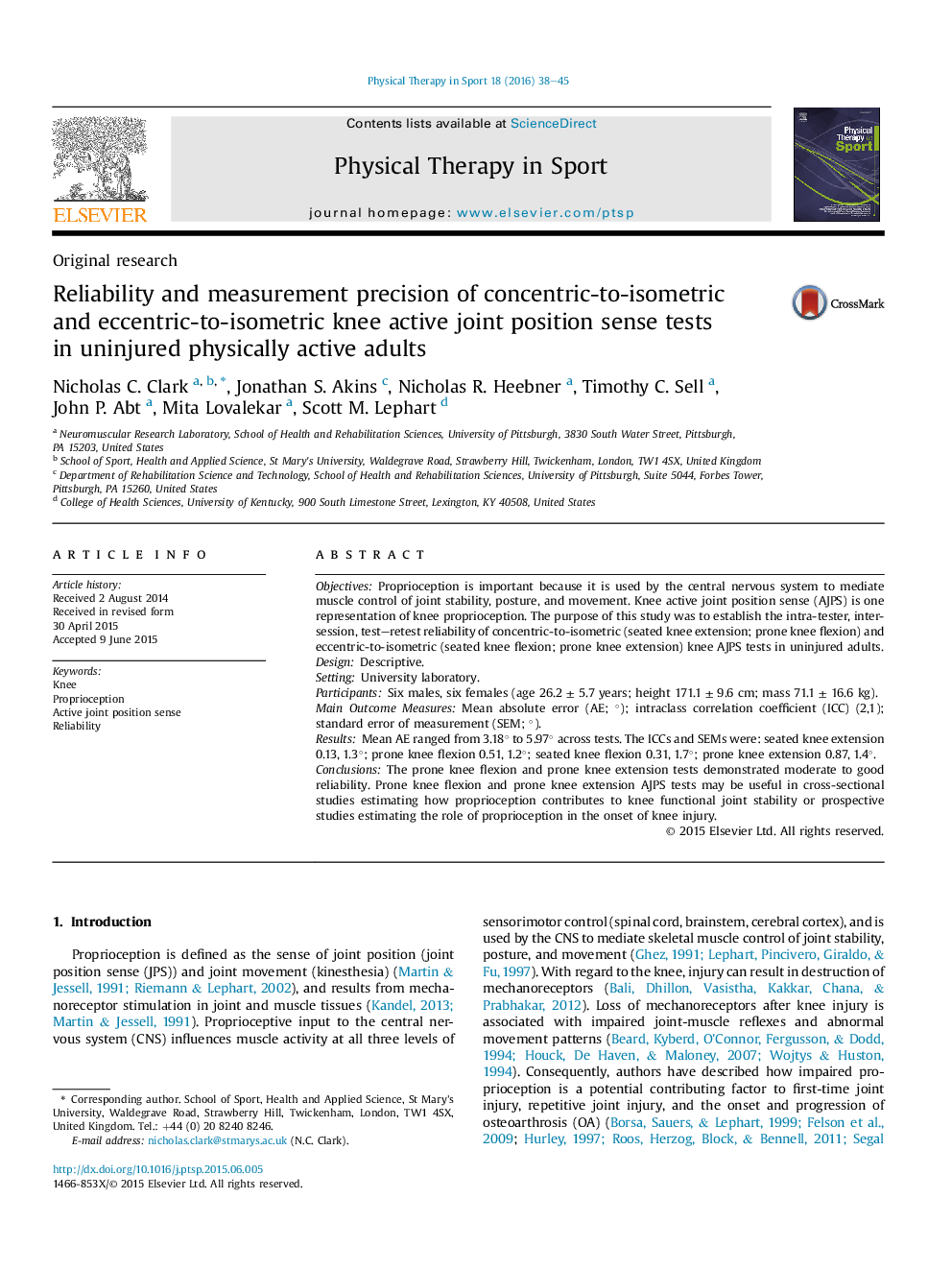| کد مقاله | کد نشریه | سال انتشار | مقاله انگلیسی | نسخه تمام متن |
|---|---|---|---|---|
| 2703542 | 1565411 | 2016 | 8 صفحه PDF | دانلود رایگان |
• The prone knee flexion active joint position sense test was reliable.
• The prone knee extension active joint position sense test was reliable.
• The seated knee extension active joint position sense test was not reliable.
• The seated knee flexion active joint position sense test was not reliable.
• All active joint position sense tests showed good measurement precision.
ObjectivesProprioception is important because it is used by the central nervous system to mediate muscle control of joint stability, posture, and movement. Knee active joint position sense (AJPS) is one representation of knee proprioception. The purpose of this study was to establish the intra-tester, inter-session, test–retest reliability of concentric-to-isometric (seated knee extension; prone knee flexion) and eccentric-to-isometric (seated knee flexion; prone knee extension) knee AJPS tests in uninjured adults.DesignDescriptive.SettingUniversity laboratory.ParticipantsSix males, six females (age 26.2 ± 5.7 years; height 171.1 ± 9.6 cm; mass 71.1 ± 16.6 kg).Main Outcome MeasuresMean absolute error (AE; °); intraclass correlation coefficient (ICC) (2,1); standard error of measurement (SEM; °).ResultsMean AE ranged from 3.18° to 5.97° across tests. The ICCs and SEMs were: seated knee extension 0.13, 1.3°; prone knee flexion 0.51, 1.2°; seated knee flexion 0.31, 1.7°; prone knee extension 0.87, 1.4°.ConclusionsThe prone knee flexion and prone knee extension tests demonstrated moderate to good reliability. Prone knee flexion and prone knee extension AJPS tests may be useful in cross-sectional studies estimating how proprioception contributes to knee functional joint stability or prospective studies estimating the role of proprioception in the onset of knee injury.
Journal: Physical Therapy in Sport - Volume 18, March 2016, Pages 38–45
